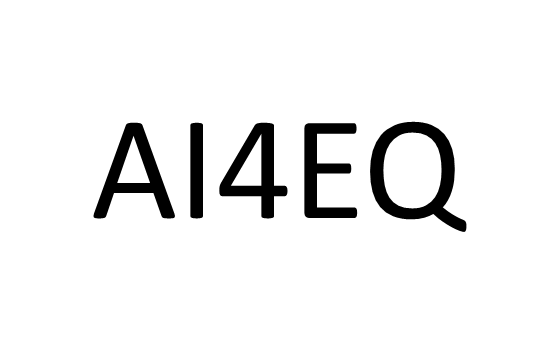Contents 1
1. THE APPROACH OF THE WHITE PAPER IS TECHNOLOGICALLY REDUCTIONIST, IN CONTRADICTION WITH THE EUROPEAN COMMITMENT TO THE UN AGENDA 2030, WHICH IS NOT GIVEN ITS DUE CENTRALITY AND, INDEED, IS HARDLY MENTIONED
● Public policies on Artificial Intelligence (henceforth AI) seem to be exclusively designed to improve the competitiveness of European companies in AI when the focus should be more on how AI helps to improve people’s living conditions, contributes to the Sustainable Development Goals (henceforth SDGs) and to the fight against climate change and its consequences. We believe that the SDGs should be at the core of Europe’s competitiveness strategy, especially in the digital and AI sector. There is a growing interest in the role that AI can play in achieving the SDGs on the part of international organizations, such as UN Global Pulse, the UNICEF Global Innovation Centre, the World Wide Web Foundation, and even the World Economic Forum. In addition, there are multiple initiatives promoting public-private partnerships concerning AI and the SDGs. We believe that in the medium to long term the commercial success of digital platforms will depend on their added social value that will, to a large extent, be determined by their alignment with the SDGs. Furthermore, AI can be a vehicle for international collaboration within Europe. A competitive Europe needs interconnected digital infrastructures and fabrics beyond those that can be offered by disconnected companies.
In terms of specific content on the SDGs, the White Paper makes only a timid mention of environmental sustainability, which does not appear as an important issue in any of the questions of the questionnaire. The potential and compelling purpose of technology to advance issues of rights, sustainability of communities, common welfare and social and gender equality is omitted. In addition, the current crisis has highlighted the need to use AI to improve the health response at national and European level, monitor progress of the infection and mitigate our vulnerability.
● The text does not mention (in section 4b Focusing the efforts of the research and innovation community) the promotion of lines of research in support of the SDGs, including the most pressing ones for Europe (fair and equitable data, sustainable economic development, risk prevention and disaster management). The United Nations has recognized that the SDGs cannot be achieved without a people-centred, science-based digital revolution. In particular, Europe is committed to addressing the refugee crisis and eradicating poverty through humanitarian assistance and civil protection actions, as well as through international development cooperation (see, e.g. – European Commission Fact Sheet Next steps for a sustainable European future – European action for sustainability: Questions & Answers, 10 Commission priorities for 2015-19, num. 9 A stronger global actor). This being so, the application of Artificial Intelligence to humanitarian response systems, at a global level and focused on the most affected groups, should be a priority at a structural level and in all countries, and should be supported by common cooperation systems.
Security also means, and we are now seeing this clearly, public health, access to essential medicines and treatments, safe food and water, social security (in the event of illness, accident, disability, retirement…), labour and consumer protection, access to housing, disaster prevention and environmental protection.
● AI research and development in the field of SDGs is biased towards issues relevant to the nations where most researchers and practitioners live. There are very few AI technologies applied in countries where there is not a strong AI research base: it might be a good idea for the EU to sponsor innovation and production of AI technologies in these countries. This would reverse the current trend where AI is increasing inequalities not only within countries but between countries. The White Paper does not talk about promoting research on how to implement these technologies adapted to different cultural values and levels of wealth. AI applications reflect the needs and values of the nations and social classes that developed them. In a globalized world the lack of human rights in any part of the planet affects us all (pandemics like COVID-19, refugee crisis…).
● It would advance the commitment to the Agenda 2030 if AI were developed with the philosophy of RRI (Responsible Research and Innovation), which aims for a new model of research governance that reduces the gap between the scientific community and society, encouraging different stakeholders (educational community, scientific, business, industry, civil society organizations, politics) to work together throughout the process of research and innovation. The idea is that cooperation between different (relatively autonomous but highly interdependent) actors will make it possible to align the research process and its results with society’s values, needs and expectations. Although the term RRI was coined a decade ago, it has recently gained prominence due to its inclusion in the Science with and for Society Programme promoted by the European Commission within the framework of the Horizon 2020 research strategy.
The RRI is a radical move toward openness and socialization of techno-scientific processes that is embodied in four principles of governance: anticipation, reflexivity, deliberation and accountability. This openness and socialization is embodied in the idea of public engagement that is essential for researchers in terms of more ethical solutions to difficult questions that facilitate acceptability and trust in research.
The RRI agenda comprises 6 policies to be taken into account throughout the research and innovation process:
a) Citizen participation, to encourage multiple stakeholders to be involved in the research process from conception through development and to delivery of results.
b) Gender equality, to promote gender balance in teams.
c) Scientific education to improve educational processes and promote scientific vocations among the youngest.
d) Ethics to promote scientific integrity, in order to prevent and avoid unacceptable research practices
e) Open access to scientific information, in order to improve collaboration between interest groups and open dialogue with society
f) Governance arrangements, to provide tools to promote shared responsibility among stakeholders and institutions.
● Another aspect that is missing concerns the social and ethical impact of AI. As AI permeates into more and more areas of society and it should increasingly be able to measure its own impact: AI should be self-assessing. Clear metrics are needed in this regard to avoid bias and undesired indirect impacts.
Social and ethical impact assessment is difficult to carry out if there are no common tools (ethical and technological) and dedicated research because individual companies do not have the capability to perform it. Furthermore, fragmented development of AI impact assessment by different companies can increase biases and, at the same time, make them uncompetitive against the platforms of the digital giants.
● Finally, to avoid introducing bias, AI needs unbiased data. The creation of an ecosystem of useful data representative of all population groups for use in public policy should be a priority. People-centred data is the first step for a people-centred AI.

